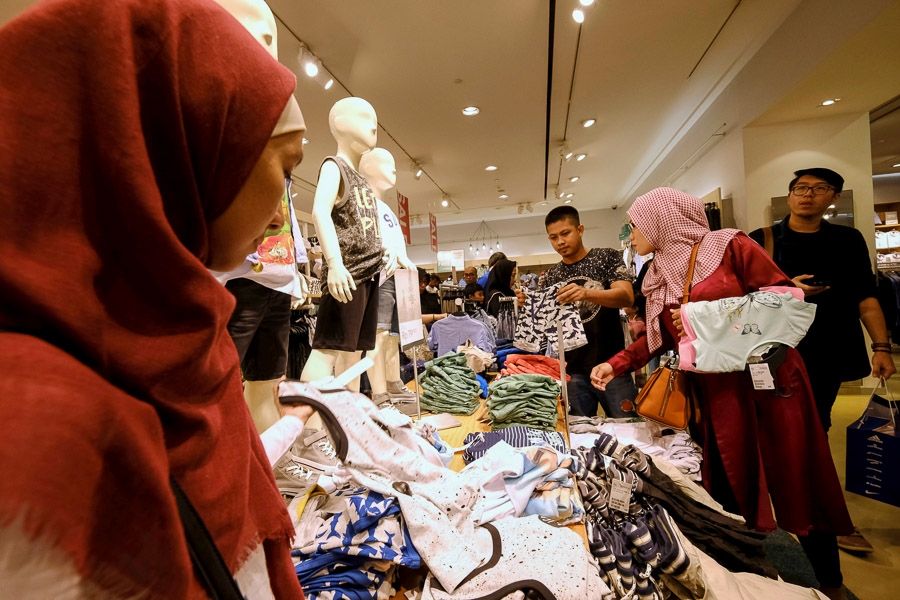Indonesia consumer confidence at record high
JAKARTA (Reuters) – Indonesia’s economic spirits are rising judging by the line of women outside a packed Furla bag shop for a traditional midnight Ramadan sale at a Jakarta mall.
The Muslim holy month, due to end in late June, is half over, and how much shopping Indonesians do during Ramadan is regarded as a reliable sign of the mood in an economy where private consumption accounts for 57 percent of gross domestic product.
“I will be shopping more this year because I’ve just got a job,” said 24-year-old Dwi Kurnia Putri, before entering the shop at the Gandaria City Mall, in the south of the capital.
“In the future, it looks like everything will turn out better but it will depend on how well I manage my money,” joked Ms Putri, who now works for an electricity company.
The central bank will hope that her optimism is infectious, as policymakers think consumer spending could lift economic growth closer to 5.3 percent this year, having dawdled at 5 percent or below in recent years.
“We are confident the next leg of economic growth will come from consumption,” Dody Budi Waluyo, head of the economic and monetary policy department at Bank Indonesia, said.
There are several signs that the outlook is brightening for Asia’s third largest consumer market and the world’s largest Muslim population.
A survey by Bank Indonesia showed consumer confidence in May was at its highest since 2000.
Prices for commodities vital to the Indonesian economy have stabilised, as has the rupiah currency.
Loan growth has topped 9 percent, and unemployment has fallen steadily. Export growth is expected to surpass 15 percent in May, boding well for the large workforce employed by that sector.
Central bank surveys also show companies have begun hiring more, and increasing their marketing budgets, while a sovereign credit rating upgrade awarded by Standard & Poor’s last month has encouraged firms to raise more debt.
The political mood in the capital, which accounts for a fifth of the archipelago nation’s economy, has also recovered, after a religiously-charged election campaign for the Jakarta governorship saw a hardline Islamist movement lead mass protests against an incumbent Christian governor who went on to lose the vote.
The feel-good factor is evident in places far beyond the capital as well, with the BI survey showing the outlook among consumers has improved particularly in commodity-reliant regions such as Sumatra and Sulawesi, probably reflecting a recovery in prices for palm oil and coal.
“The commodity crisis is kind of done and the economy is showing a smart recovery, so I would expect that the growth rate in consumption to rise in the second half,” said Ali Potia, international consulting firm McKinsey’s Singapore-based leader for consumer practices in Southeast Asia.
“The expectation in the retail sector is that this Ramadan is going to be busier than they’ve seen in a very long time.”
Buying new clothes during Ramadan, and eating out to breakfast with friends and family are part of Indonesian culture.
Workers in the big cities look forward to returning to their kampungs, or villages, laden with bags full of gifts for the family.
If they go home with few presents for the Eid festival at the end of the fasting month, it would be a sign of hard times.
Source: http://www.khmertimeskh.com/news/39383/indonesia-consumer-confidence-at-record-high/


 Thailand
Thailand




